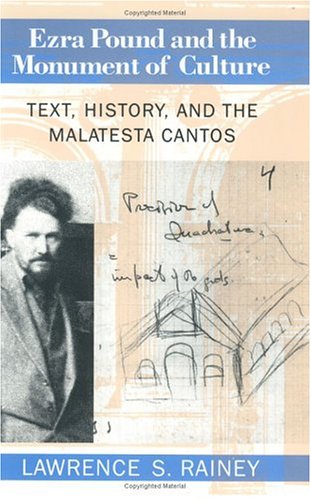In the summer of 1922, Ezra Pound viewed the church of San Francesco in Rimini, Italy, for the first time. Commonly known as the Tempio Malatestiano, the edifice captured his imagination for the rest of his life. Lawrence S. Rainey here recounts an obsession that links together the whole of Pound's poetic career and thought.
Written by Pound in the months following his first visit, the four poems grouped as "The Malatesta Cantos" celebrate the church and the man who sponsored its construction, Sigismondo Malatesta. Upon receiving news of the building's devastation by Allied bombings in 1944, Pound wrote two more cantos that invoked the event as a rallying point for the revival of fascist Italy. These "forbidden" cantos were excluded from collected editions of his works until 1987. Pound even announced an abortive plan in 1958 to build a temple inspired by the church, and in 1963, at the age of eighty, he returned to Rimini to visit the Tempio Malatestiano one last, haunting time.
Drawing from hundreds of unpublished materials, Rainey explores the intellectual heritage that surrounded the church, Pound's relation to it, and the interpretation of his work by modern critics. The Malatesta Cantos, which have been called "one of the decisive turning-points in modern poetics" and "the most dramatic moment in The Cantos," here engender an intricate allegory of Pound's entire career, the central impulses of literary modernism, the growth of intellectual fascism, and the failure of critical culture in the twentieth century. Included are two-color illustrations from the 1925 edition of Pound's cantos and numerous black-and-white photographs.
- ISBN10 0226703169
- ISBN13 9780226703169
- Publish Date 15 December 1991
- Publish Status Active
- Publish Country US
- Imprint University of Chicago Press
- Edition 2nd ed.
- Format Hardcover
- Pages 368
- Language English
- URL http://wiley.com/remtitle.cgi?isbn=9780226703169
